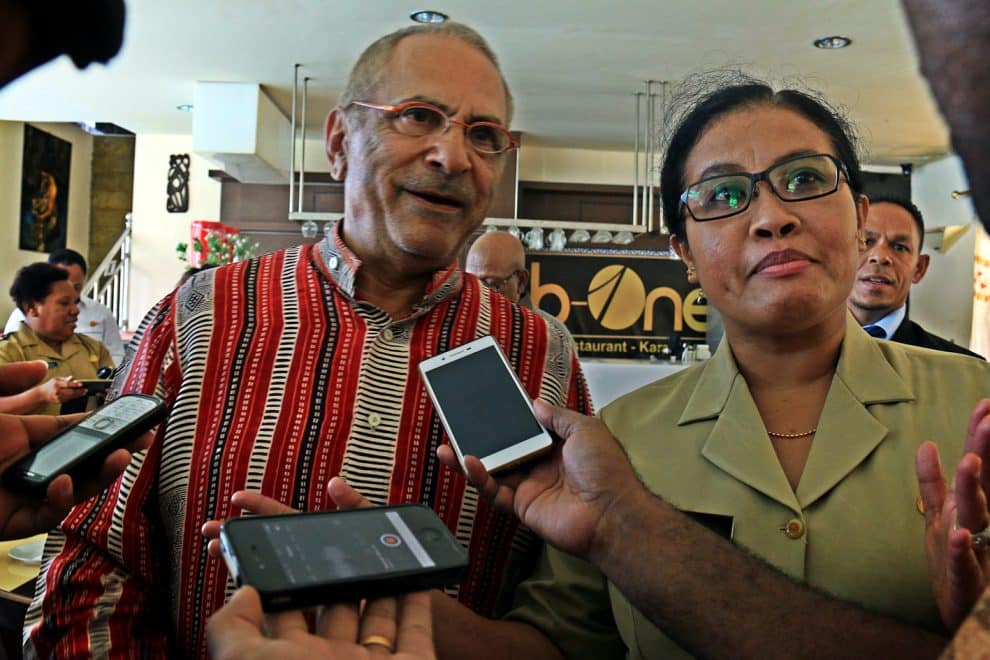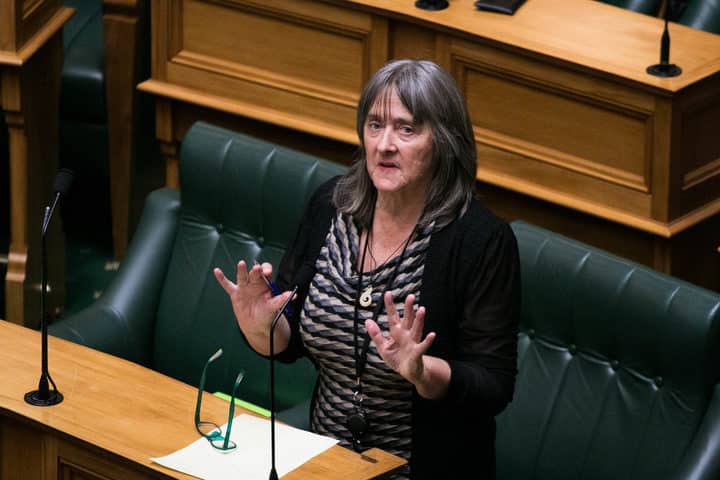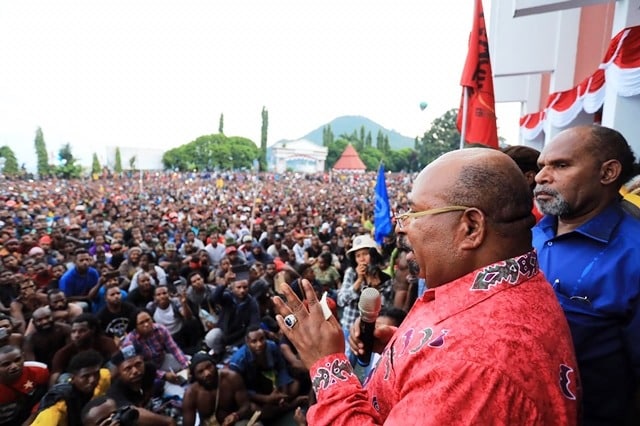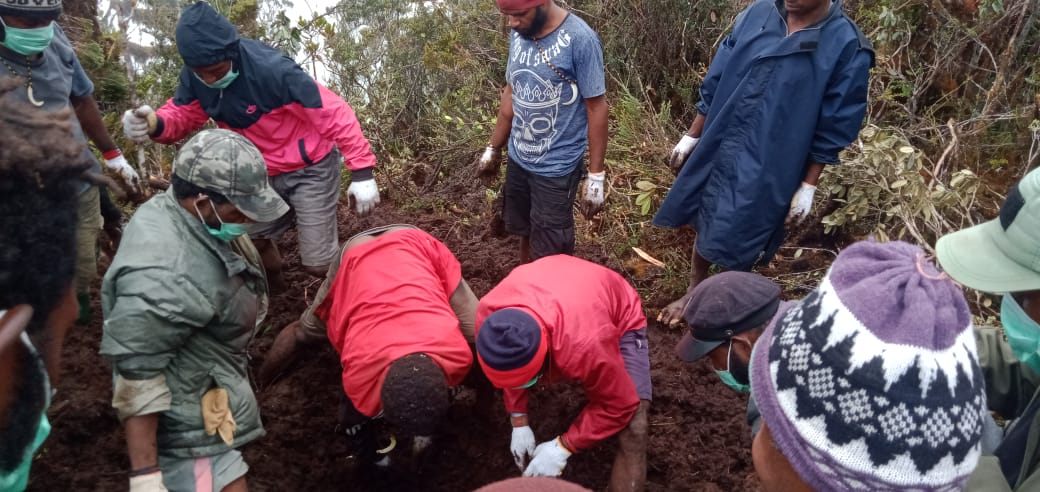
By Maire Leadbeater
IT would be hard to overstate the importance of the role that Jose Ramos Horta played during the long dark years when Timor Leste was occupied by Indonesia. As ‘foreign minister’ in exile he developed quite extraordinary advocacy and diplomatic skills that other liberation movements could only envy. His international work with states and solidarity movements made a vital contribution to Timor Leste’s liberation in 1999.
Reflecting on this role I am saddened and bewildered that he has become an apologist for Indonesia’s repressive rule in West Papua. Back in his campaigning days Ramos Horta regularly rubbed shoulders with his West Papuan colleagues at international conferences and at the United Nations. When he received the Nobel Peace Prize in 1996 he said in his acceptance speech that the Timorese were not alone in seeking self-determination but struggled alongside millions of others including the people of West Papua.
However , since he has become an establishment figure, Ramos-Horta has been telling the West Papuans to moderate their demands and to settle for autonomy rather than independence. This month he took things even further by visiting the territory as the guest of the Indonesian Security Affairs Minister Luhut Panjaitan. Afterwards he pronounced that the human rights situation was improving and Indonesia could solve any remaining problems without outside help.
Did he see anything of the spectacularly large peaceful demonstrations that were taking place while he was there? On 2 May as many as 2000 young Papuan activists were arrested across the country – the largest mass arrest in West Papua’s history. In Jayapura those detained were hoarded into an open police compound and held stripped to the waist in searing temperatures. Journalists were barred from covering the events and one was detained. Ramos-Horta could have sought out the human rights defenders and Church leaders who went to monitor the police actions and call for the release of the young people. They would have explained that the entirely peaceful demonstrations were held to show support for international initiatives including an important meeting of Melanesian leaders in Vanuatu and a London meeting of the International Parliamentarians for West Papua.
Perhaps Jakarta was keen to recruit Jose Ramos-Horta to its support team to help counteract the tidal wave of support for West Papua sweeping across the Pacific. Jakarta’s nightmare is that the Melanesian Spearhead Group (MSG) will elevate the West Papuan umbrella group United Liberation Movement for West Papua (ULMWP) from observer to full member status as the Prime Ministers of Solomon Islands and Vanuatu now propose. To stave this off Minister Panjaitan has been strenuously lobbying in Suva and Port Moresby. A generous cheque for cyclone relief seemed to impress Fiji’s Prime Minister Bainimarama. Panjaitan’s initiatives have not gone down well with grassroots Pacific movements which are expanding day by day. Tongan Prime Minister Akilisi Pohiva took part in the well-attended London meeting for parliamentarians.
West Papuan Church leaders, like Reverend Socratez Yoman who is currently touring Aotearoa, says nothing will stop the momentum of the movement now that the ULMWP has been recognised by the MSG. Unrestrained migration has tipped the demographic balance in favour of the newcomers and resource exploitation is stripping away life-giving lands and forests. The people are determined not to stay silent any longer in the face of what they see as a ‘slow genocide’.
Since his country’s liberation Jose Ramos-Horta has held high office as Prime Minister and President of his country as well as serving as a UN envoy in Guinea-Bissau, but he cannot have forgotten everything his learned during his long exile. Does he think about the brave actions of young activists in pre-liberation Timor-Leste? Timorese took to the streets whenever there was a chance they could get their message out into the international media, just as the West Papuans do now. Sometimes the results were lethal – 271 young demonstrators were massacred in 1991 at the Santa Cruz cemetery. Today in Timor Leste the young martyrs of this non-violent struggle are rightly honoured – they sparked a new wave of international solidarity and paved the way for change.
What is more Jose Ramos-Horta knows what it is to be shunned and sidelined and to refuse to give up. In 1978 he was invited to tour New Zealand but the Muldoon Government was reluctant to give him a visa. He did not tour that year but the debate generated by the attempt to turn him away gave the cause unprecedented publicity. A ‘Let Horta Speak’ campaign grabbed the headlines and journalists sought out this controversial spokesperson for phone interviews. Two decades later a New Zealand foreign minister finally agreed to meet him.
Defending his changed stance Ramos-Horta says that Indonesian rule over West Papua can be justified by the fact that the territory was once ruled by the Dutch as part the Dutch East Indies, forerunner of modern Indonesia. Timor-Leste was a Portuguese territory prior to the 1975 Indonesian invasion. The West Papuans remind us that they were on their way to independence as part of the Pacific family when a new colonisation was forced on them. Indonesian rule came about as a result of 1962 negotiations between the Netherlands and Indonesia brokered by the United States. The Papuan people were not consulted. Yes, the UN, to its shame, acknowledged a fraudulent self-determination process which took place in 1969. But it is clear from eye-witness reports and declassified documents that the “Act of Free Choice’ was a manipulated ‘Act of No Choice. There were only 1022 press-ganged participants out of a population of a million – they were sequestered away from their communities before the vote and threatened with violence if they did not make the right choice.
Jose Ramos-Horta was once a beacon of hope to oppressed people around the world. Now he is on a different path and it seems to me like a wrong turning. (*)
Maire Leadbeater is a Former East Timor and current West Papua solidarity activist
















